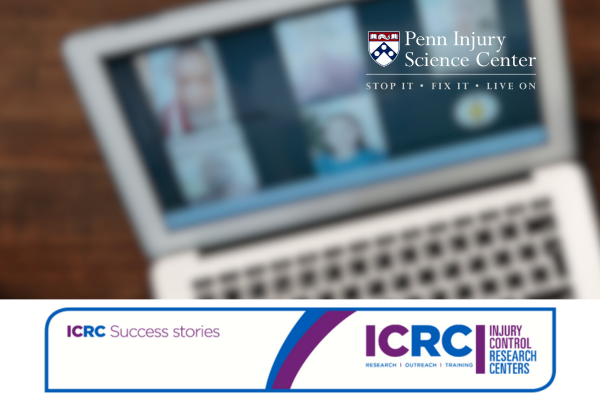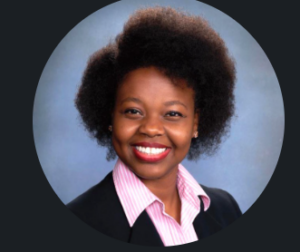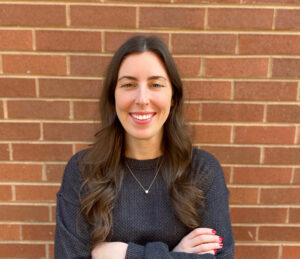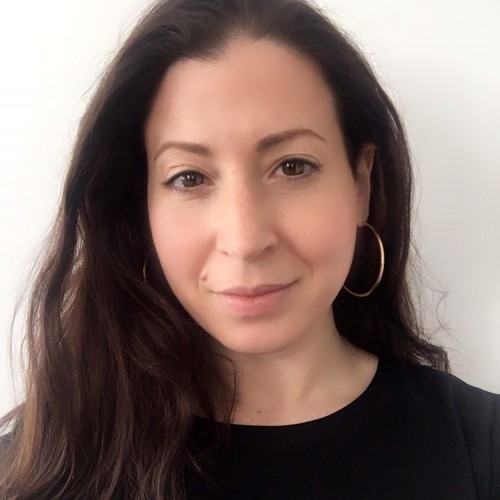The Penn Injury Science Center (PISC) is proud to spotlight the latest cohort of its Trainee Learning Lab (TLL). This dynamic program and CDC Success Story continues to advance the field of injury and violence prevention by fostering a collaborative and insightful learning environment for emerging researchers and practitioners.
Diverse Perspectives and Networking Opportunities
The TLL shines in its ability to connect trainees with a diverse array of experts and peers. Prarthana Pilla, a research coordinator at the Child Health Equity Center at UMass, appreciates the program’s diversity “amongst both the trainees and presenters,” said Pilla. “As an early-stage researcher, it is valuable and comforting to see that there are several avenues to pursuing injury and violence prevention research.” Emily Dzieniszewski, a Master of Public Health student at UPenn, also valued the interactions with fellow professionals: “Meeting and interacting with other injury and violence prevention professionals and students made every session very insightful and enjoyable.”
“As an early-stage researcher, it is valuable and comforting to see that there are several avenues to pursuing injury and violence prevention research.” -Prarthana Pilla, research coordinator at the Child Health Equity Center at UMass
Deepening Research Knowledge and Skills
The TLL excels in enhancing participants’ research skills and broadening their understanding of various methodologies. Dr. Alisa Shockley, a Penn Provost Postdoctoral Fellow with Dr. Sara Jacoby and Dr. Gina South, found the methodological discussions particularly valuable: “I found the discussions with the authors and directors of the research particularly engaging. While I typically lean towards mixed methods and qualitative research, delving into their methodologies and reasoning offered valuable insights. Among the various approaches explored, I was particularly drawn to the documentary and ethnographic methods.” Jillian Baker, a doctoral candidate at the University of Michigan, appreciated how the program deepened her understanding of injury research: “Interacting with scientists across different institutions presented unique opportunities for discussion, allowing trainees to deepen our understanding of various areas of injury research. I feel much more well-versed in a range of injury topics, and I credit these monthly seminars with increasing my interest in injury science and desire to work in this field.”
“I feel much more well-versed in a range of injury topics, and I credit these monthly seminars with increasing my interest in injury science and desire to work in this field.” -Jillian Baker, doctoral candidate at the University of Michigan
Engaging with Leading Experts
One of the key benefits of the TLL is the chance to engage with leading researchers. Karen Lim Phat, a Clinical Research Coordinator supporting the Driving After Concussion study (DAC), led by Dr. Catherine McDonald at CHOP’s Center of Injury Prevention (CIRP), highlighted the value of “learning about other ongoing research in the field and having discussions with peers with different expertise and backgrounds.” Dr. Anita Wamakima, a general surgery resident at Temple University Hospital, valued the detailed discussions with authors, “being able to break down papers with peers and ultimately talk with the primary author about their thoughts on the paper and their next steps in greater detail.”
“being able to break down papers with peers and ultimately talk with the primary author about their thoughts on the paper and their next steps in greater detail…” -Dr. Anita Wamakima, general surgery resident at Temple University Hospital
Building a Supportive Community
The TLL fosters a supportive community where diverse backgrounds enrich discussions. Dr. Dorothy C. Handfield, a retired educator and researcher, appreciated the thought-provoking nature of the small group discussions: “It was intriguing to discuss with the authors the rationale behind their research. And, our small group discussions were thought-provoking because everyone contributed a wealth of information due to their diverse backgrounds.” Maggie Sarle, a research associate at Nationwide Children’s Hospital, found value in the insights shared by both guest authors and fellow trainees: “My favorite part of the TLL was hearing the insights of the guest authors and my fellow trainees through the monthly discussions.”
“…our small group discussions were thought-provoking because everyone contributed a wealth of information due to their diverse backgrounds.” -Dr. Dorothy C. Handfield, researcher and retired educator from the Newark Board of Education
Broadening Professional Horizons
The TLL also helps participants expand their professional networks and knowledge. Colleen S. Walsh, a doctoral candidate at Virginia Commonwealth University, found the program to be a significant addition to her training: “TLL was a terrific supplement to the final year of my doctoral training. This program bolstered my knowledge of broader violence topics and facilitated a widening of my scientific network. I’ve referred a number of my doctoral student peers to this program as I know they’ll reap the same benefits I have.”
“I’ve referred a number of my doctoral student peers to this program as I know they’ll reap the same benefits I have.” -Colleen S. Walsh, doctoral candidate at Virginia Commonwealth University
The Penn Injury Science Center’s Trainee Learning Lab remains a pivotal experience for emerging professionals in injury and violence prevention. By providing a platform for diverse learning, networking, and engagement with leading experts, the TLL is shaping the future of injury science research and practice.
Thanks to all 2023-24 participants and guest authors, including those not mentioned above, such as Adam Mussell, Dr. Meredith E. Kneavel, Elizabeth Metzger, Dr. Laura Bricklin, and more.







